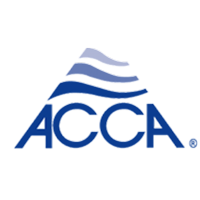Completing the search for your first home is exciting. You’re likely trying to keep track of a dozen things or more about making the right choice. We believe that gaining insight into your future HVAC system is crucial. The property’s HVAC system represents a significant investment and potential source of long-term costs, illustrating why a detailed inspection should be a top priority for first-time homebuyers.
In the following guide, we’ll share seven tips for discovering all there is to know about a home’s heating and cooling system. And if you want a more in-depth opinion from the pros, feel free to call Solar Air Inc.. Our seasoned technicians can help you compare your options with industry insights that are second to none.
1. What Type of HVAC System Is It?
Start by identifying what type of HVAC system the home includes. Furnaces generally last longer compared to air conditioners, and some of the latest types of HVAC equipment like heat pumps feature average life spans that are impressively long. Getting the details on the make and specific model provides a clear idea of how much maintenance it will require.
2. What Is the Current System’s Age?
It’s just as smart to learn how old the HVAC system is when you’re looking at a new home. In general, HVAC systems last about 10-12 years. Having the knowledge of when it was installed helps you plan for possible repair needs or when it might shut down for good. Older systems are at a higher risk of problems, so budgeting for a replacement unit might be needed faster than expected.
3. What Does the Warranty Cover?
Don’t forget to look into whether the HVAC system is still under warranty. If it is, this can lower maintenance costs. HVAC warranties should take care of parts and labor, but specifics will vary. Review any terms you don’t recognize to make sure you fully understand your coverage and the likelihood of out-of-pocket costs.
4. Has the System Ever Been Professionally Serviced or Maintained?
Next, examine the maintenance history of the HVAC system, if this kind of history is accessible. This service history can demonstrate if the system constantly broke down or how much upkeep was provided. Ask about records for key tasks such as changing the air filter, which means it enjoyed more regularly scheduled tune-ups.
5. What Are the Energy Efficiency Ratings?
Purchasing a home with a heating and cooling system with high energy efficiency means lower utility bills and a smaller environmental impact. Locate the seasonal energy efficiency ratio (SEER) ratings for air conditioning along with the annual fuel utilization efficiency (AFUE) for furnaces. The higher the SEER rating, the more efficient the cooling over the whole season, while strong AFUE ratings indicate that the fuel is efficiently converted into useable heat.
6. Have You Noticed Signs of Problems During Your Inspection?
Even without the know-how of an HVAC technician, you can still take a moment to examine the HVAC system yourself. Watch closely for signs of problems that might have been overlooked. This can mean bizarre noises, unequal airflow and attempts to hide any serious damage.
7. Have You Asked Your Local HVAC Professional?
If you’re not quite sure about the overall state of the HVAC system, it’s never a bad idea to get input from certified HVAC technicians. They will be much more likely to catch things you might miss, such as refrigerant leaks, bad electrical connections or inefficient ductwork.
A Consultation with Solar Air Inc. Simplifies Your Home-Buying Journey
Choosing your first home is meant to be a joyful event, and Solar Air Inc. can ensure yours is too. Connect with us at 954-320-7398. We can talk about how our HVAC services give you peace of mind, giving you what you need to dive into home-ownership with confidence.



